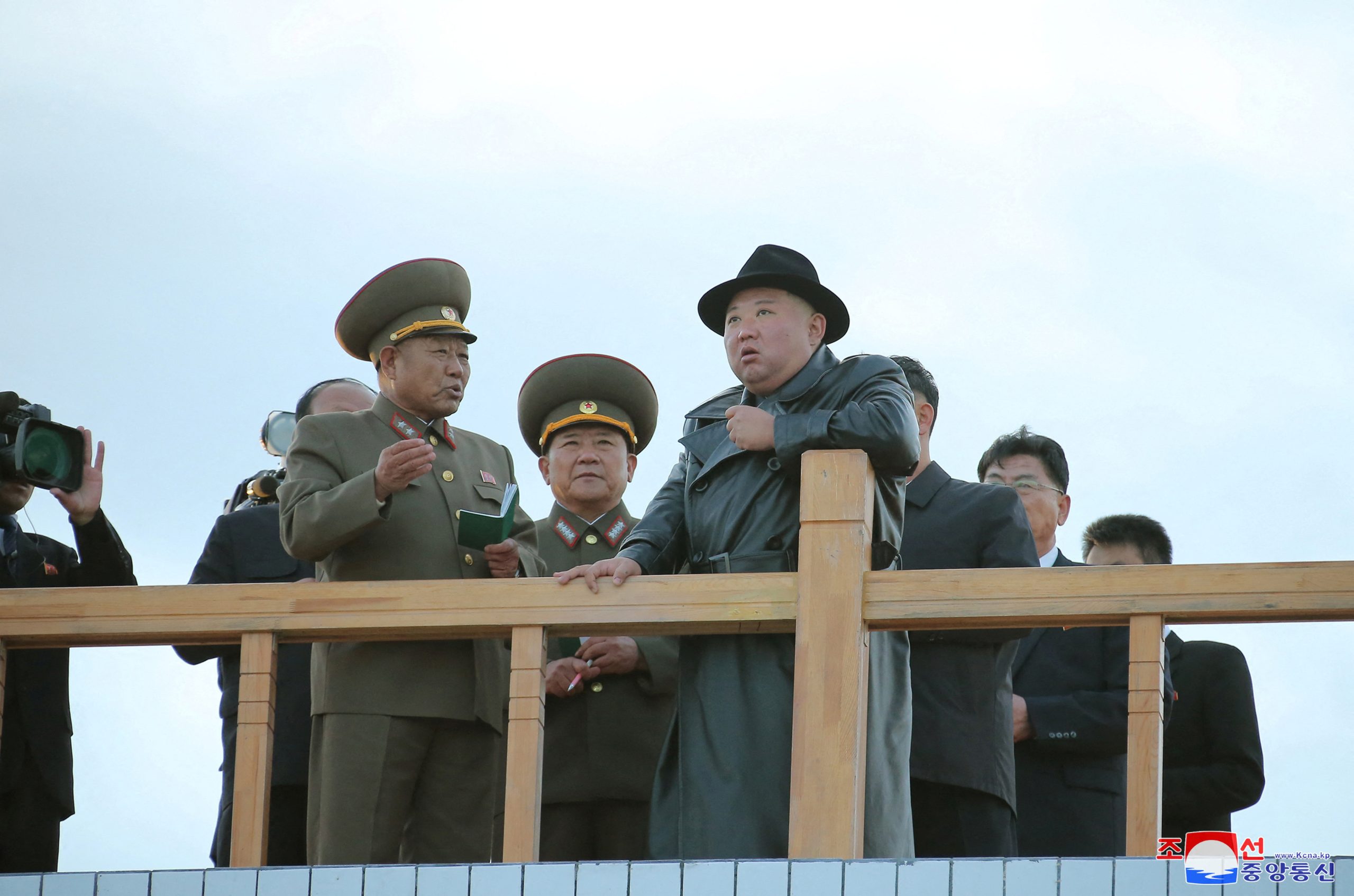
[elfsight_social_share_buttons id=”1″]
North Korea fired a short-range ballistic missile into the sea and hundreds of artillery rounds near the border with the South on Friday, South Korea‘s military said, the latest military activity by the nuclear-armed country amid heightened tensions.
South Korea also scrambled fighter jets when a group of about 10 North Korean military aircraft flew close to their heavily fortified border, and North Korea fired some 560 rounds of artillery into “sea buffer zones” on multiple occasions, the South’s Joint Chiefs of Staff (JCS) said.
South Korea‘s National Security Council (NSC) condemned the North for escalating tensions, calling its moves a violation of a 2018 bilateral military pact that bans “hostile acts” in the border area.
Seoul imposed its first unilateral sanctions against Pyongyang in nearly five years, blacklisting 15 North Korean individuals and 16 institutions involved in missile development.
The JCS issued a warning to North Korea, urging it to stop provocations and escalating tension.
South Korean President Yoon Suk-yeol told reporters that Pyongyang has been “indiscriminately carrying out provocations”, vowing to devise “watertight countermeasures.”
Yoon’s spokesman said that his government respected inter-Korean agreements, and that scrapping the 2018 military pact hinged on Pyongyang’s behavior.
North Korea‘s military issued a statement via state media KCNA early on Friday saying that it took “strong military countermeasures,” over artillery fire by South Korea on Thursday.
South Korea‘s NSC said the firing was a “regular, legitimate” exercise.
The incidents came after North Korea‘s state news agency KCNA said leader Kim Jong Un oversaw the launch of two long-range strategic cruise missiles on Wednesday to confirm the reliability of nuclear-capable weapons deployed to military units.
The unprecedented frequency of North Korea‘s missile launches has raised concerns it may be preparing to resume testing of nuclear bombs for the first time since 2017. Some analysts do not expect any tests before neighboring China concludes a key ruling Communist Party congress, which begins on Oct. 16.
The U.S. Indo-Pacific Command said it was aware of the latest missile launch and “it does not pose an immediate threat”.
Japan’s Chief Cabinet Secretary Hirokazu Matsuno said the North‘s tests were “absolutely unacceptable”, and his country would “drastically strengthen” its defense.
Chinese foreign ministry spokesperson Mao Ning said all parties should refrain from escalating tension and resume meaningful dialogue for a political solution.
Flaring tension
South Korea‘s JCS said the latest missile was launched at 1:49 a.m. on Friday from the Sunan area near North Korea‘s capital, Pyongyang, and flew about 435 miles to an altitude of 50 km at a speed of Mach 6.
Japan’s coastguard also reported the launch, which was at least the 41st ballistic missile test by the North this year.
The North fired some 390 artillery shells into the sea off its east and west coasts for two hours from 5 p.m., just hours after shooting another 170 rounds near the maritime border, the JCS said.
The JCS said the aircraft incident occurred for about two hours from 10:30 p.m. on Thursday, during which about 10 North Korean warplanes flew as close as 7 miles north of the sea border and 15 miles north of the Military Demarcation Line.
It said the South Korean air force “conducted an emergency sortie with its superior air force, including the F-35A”.
South Korea‘s military will hold its annual Hoguk defense drills starting next week, including field training simulated to counter the North‘s nuclear and missile threats, it added.
In its first unilateral sanctions since 2017, Seoul’s finance and foreign ministries singled out four officials at the North‘s military think-tank, and 11 at a trading company.
The flaring tension revived fears in South Korea of a potential provocation by the North.
Although there were no signs of panic among South Koreans, a Gallup poll released on Friday showed more than 70% of respondents said North Korea‘s missile tests threatened peace, the highest since the North‘s sixth nuclear test in 2017.
Copyright 2022 Thomson/Reuters
